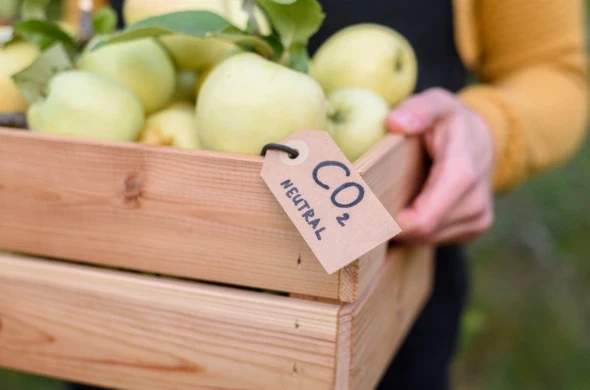The United Arab Emirates (UAE) is rapidly transforming its agricultural industry through the adoption of agri-tech innovations, addressing critical issues of food security and sustainability. In a country where farmable land and water resources are scarce, leveraging advanced technology in agriculture is not just an option — it’s a must.
Whether you opt for working with professional agriculture consultancy services or simply familiarize yourself with the best agri-tech practices in this blog post, staying informed is key. Below, we’ll cover everything you need to know.
What are the areas of AgriTech?
Agri-tech uses a wide range of technologies to improve the efficiency and productivity of agricultural practices:
- Vertical farming allows for the cultivation of crops in stacked layers, utilizing limited space more effectively. An excellent example is the indoor vertical farm in Masdar City in Abu Dhabi, which is expected to produce more than 650 kilograms of leafy greens each month.
- Smart irrigation systems are being developed to optimize water use, ensuring that crops receive the right amount of water at the right times, and reducing waste.
- Drones and robotics can monitor crop health, apply pesticides, and perform other tasks that traditionally require intensive human labor.
- AI and blockchain technologies are also being integrated to enhance data analytics, supply chain transparency, and resource management.
Agri-Tech Importance for the UAE
Agri-tech is of paramount importance for the UAE for several reasons.
First and foremost, it plays a key role in addressing food security. With the nation's population continuing to grow, the demand for food is increasing, making it essential to produce more food locally. Agri-tech reduces the UAE's dependency on food imports by enabling the production of a wider variety of crops domestically, which also contributes to economic stability.
Agri-tech also promotes sustainable agricultural practices. Traditional farming methods often lead to soil degradation and excessive water use, but agri-tech solutions, such as hydroponics and aquaponics, minimize environmental impact and conserve vital resources. By adopting these innovative practices, the UAE is not only ensuring a stable food supply but also setting an example in the region for sustainable development.
The adoption of agri-tech in the UAE is a strategic move through the help of agriculture consulting services, as it can help secure a sustainable and self-sufficient agricultural future.
Investment and Innovation
At our consulting firm, we have seen the agri-tech sector in the UAE significantly grow in investment and innovation in recent years. The market size is expanding rapidly, driven by the need for sustainable agricultural solutions and the increasing demand for locally produced food.
Key players in this space are global agri-tech companies, regional startups, and other established agricultural consulting firms that are diversifying into technology-driven solutions. These players are pioneering advancements in areas such as hydroponics, aquaponics, and precision agriculture.
Growth projections for the agri-tech market in the UAE are highly optimistic. Analysts predict substantial annual growth from $3.2 Bln USD in 2023 to $4.1 Bln USD by 2029. This will be fueled by continuous investments in research and development and the UAE government’s supportive policies and initiatives. This growth is not only expected to enhance food security but also to position the UAE as a leader in the global agri-tech landscape.
Government Initiatives
The UAE government has been proactive in fostering the development of the agri-tech sector through a variety of initiatives.
The National Food Security Strategy aims to make the UAE one of the top ten most food-secure countries in the world by 2051. This strategy focuses on promoting sustainable agricultural practices, increasing local food production, and ensuring the availability of safe and nutritious food at affordable prices.
Another significant initiative is Dubai’s Food Tech Valley, which is designed to serve as a hub for agri-tech innovation. This project was designed to create a sustainable food production ecosystem by integrating advanced technologies in agriculture, encouraging research and development, and attracting global talent and investment. The Food Tech Valley will focus on vertical farming, aquaculture, and other innovative farming techniques to boost local food production and reduce dependency on imports.
Technological Innovations
Technological innovations are at the heart of the agri-tech revolution in the UAE. As mentioned, vertical farming is one of the most promising technologies, allowing for the cultivation of crops in vertically stacked layers. This method maximizes the use of limited space and resources, making it ideal for urban environments and desert climates.
Smart irrigation systems are another critical innovation. These systems use sensors and data analytics to optimize water usage, ensuring that crops receive the precise amount of water needed, thereby conserving water and improving crop yields. Drones and robotics are being employed to monitor crop health, apply fertilizers and pesticides, and perform other tasks that traditionally require manual labor, thus increasing efficiency and reducing costs.
AI and blockchain technologies are also transforming the agri-tech sector. AI is being used for predictive analytics, helping farmers make informed decisions about planting, harvesting, and resource management. Blockchain, on the other hand, is enhancing supply chain transparency, ensuring that food products are traceable from farm to table, thereby increasing consumer trust and food safety.
These technological advancements are not only improving agricultural productivity but also contributing to the UAE’s sustainability goals by reducing resource consumption and minimizing environmental impact.
Key Challenges
Despite the significant progress and investment in the agri-tech sector, the UAE faces several challenges that must be addressed to ensure sustainable growth. High investment costs remain a primary barrier. Advanced technologies like vertical farming, smart irrigation, and robotics require substantial initial capital, which can be prohibitive for smaller enterprises and startups.
Another challenge is that the UAE has limited arable land. The harsh desert climate and scarcity of fertile soil necessitate innovative solutions such as hydroponics and vertical farming to maximize food production in confined spaces. Water scarcity is another critical issue. Agriculture is a major consumer of water, and in a country where freshwater resources are extremely limited, developing water-efficient technologies and practices is key.
Trends and Outlook
The future of agri-tech in the UAE is shaped by several key trends. Sustainability and climate-smart practices are at the forefront, with a strong focus on reducing the environmental impact of agricultural activities. Techniques such as precision agriculture, which optimizes input usage, and the adoption of renewable energy sources in farming operations are taking off.
Digitalization and data analytics are also transforming the agricultural space by enabling more efficient and precise farming practices. Farmers are increasingly using data-driven tools to monitor crop health, predict yields, and manage resources more effectively.This digital shift is expected to continue, driving even more improvements in productivity and sustainability.
Collaboration and international partnerships are also crucial for the growth of the agri-tech sector. The UAE is actively seeking to forge alliances with global agri-tech leaders, research institutions, and technology providers. These partnerships are essential for knowledge transfer, access to cutting-edge technologies, and the development of innovative solutions tailored to the UAE’s unique challenges.
Agri-Tech Industry Solutions for a Sustainable Future
As the UAE continues to invest in and prioritize agri-tech, it is clear that the sector holds immense potential to transform the nation’s agricultural industry. By addressing the challenges such as high investment costs, limited farmable land, and water scarcity, and by leveraging trends in sustainability, digitalization, and international collaboration, the UAE is well-positioned to become a global leader in agri-tech innovation.
For businesses and entrepreneurs looking to navigate this rapidly evolving industry, partnering with experts can provide a significant advantage. At Ollen Group, a global consulting firm with extensive experience, we offer comprehensive support from idea to execution. Our results-oriented approach ensures that clients receive personalized solutions to their most challenging problems, whether they are launching new initiatives or enhancing existing operations.
Read our latest insights, ideas, and perspectives that explore the trends shaping the future of business and society. Our consultancy services go hand-in-hand with these insights, confirming our position as industry leaders. Get in touch to find out more about our consulting services and industry expertise.



